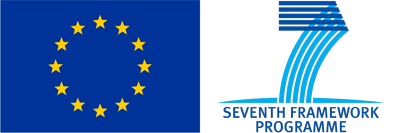In this section
Further information
Overall Findings
While a consensus is observed amongst many policy makers on the benefits of open access for science, industry and civil society, there are still important barriers that need to be overcome. The RECODE project identified in particular two overarching issues in the mobilization of open access to research data: a lack of coherent open data ecosystem and a lack of attention to the specificity of research practices, processes and form of data collections.
The project performed literature review of policy documents, current research, reports and projects, and conducted interviews in five disciplinary case studies in order to address four grand challenges in open access to research data. On the basis of this work it developed overarching and specific recommendations for funders, research institutions, data managers and publishers.
Stakeholder Values and Ecosystems
In view of contributing towards a coherent ecosystem, RECODE studied the diverse stakeholders comprising the ecosystem in research data and open access, specifically their functions and values. This complex ecosystem was studied by identifying stakeholders through their functions, namely 1) funding and initiating, 2) creating, 3) disseminating, 4) curating, 5) using. This community of stakeholders shares multiple and occasionally overlapping functions and an overarching consensus on the benefits of open access to research data. The latter relate to the increase in productivity and quality of scientific work, the economic and social benefits obtained, while there is a clear sense of open access to research data as a general public good. Despite this consensus, RECODE showed that the road towards open research data is not perceived in the same way by stakeholders, as a result of conflicting value chains, parallel and disconnected processes, especially between the current disciplinary specific research practices and increasing funder and institutional demands for open access to the former. Concerns are raised about the costs of research data, while the participation of the research community emerges as a critical point in the success towards accessible, intelligible, assessable, and usable open research data.
Infrastructure and Technology
The main infrastructure and technology challenges identified by RECODE project were grouped in five broad categories: heterogeneity and interoperability; accessibility and discoverability; preservation and curation; quality and assessability; security. RECODE research concluded that technological challenges are not viewed of high concern in implementing open access to research data when compared to financial, cultural and legal ones. In addressing the above challenges the project assessed that it is necessary to adopt technical and infrastructural solutions that holistically address the above issues, paying particular attention to: open and interoperable standards, harmonized discovery and services, persistent identifiers, promotion of a culture for data management, virtualization technologies, research data that are fit for use, technical solutions for security and legal issues around open research data. The different attitudes in different fields of science also emerged as critical in relevant policy development.
Legal and Ethical
RECODE examined and analysed legal and ethical issues revolving around open access to research data. Legal issues focused on intellectual property rights (including copyright, trade secrets and database rights) privacy and data protection, open access mandates. Ethical issues focused on unintended secondary uses, misappropriation and commercialization of research data, unequal distribution of scientific results and disproportionate impacts on scientific freedom as well as other economic, social and scientific costs. The project demonstrated that legal obligations to which stakeholders are subject to are often in conflict, resulting in a drain of resources as well as efforts to establish creative ways of dealing with the challenges. Researchers and institutions have already adopted strategies and measures to address potential legal and ethical issues, such as access control mechanisms, licensing and ‘soft law’ measures, and many of these strategies are shared in addressing both legal and ethical issues. RECODE recommends the extensive use of open licensing and implementing technical solutions for legal and ethical issues, systematically turning institutional attention to developing solutions for legal and ethical problems arising from open access to research data, including internal review processes. Understanding that not all data can be open RECODE recommends focusing on addressing when it is lawful and appropriate to provide open access to personal data and establishing better reward systems for high-quality data.
Institutional Challenges
Financial support, evaluating and maintaining the quality, value and trustworthiness of research data, training of researchers and other relevant stakeholders as well as awareness-raising on the opportunities and limitations of open access to research data were identified as key challenges faced by institutions such as archives, libraries, universities, data centres, and research funders. Institutions need to address the issue of sustained funding for long-term research data curation as a distinct need and consider collaborative efforts, especially in view of the rapid growth in data volumes and ever-changing technologies, practices and resulting research data. Research data quality is essential for reuse and long-term preservation, and while technical quality is being addressed more attention should be directed towards developing clear guidelines for scientific quality. In doing so, it is essential to provide researchers rewards by including research data in evaluations, to have clear responsibility lines among stakeholders, and further explore mechanisms that contribute to evaluation, such as data journals and peer review mechanisms. Institutions are also expected to play a key role in providing training to researchers and other relevant stakeholders, such as data managers. In developing appropriate training and educational courses institutions are faced with the diverse needs and knowledge levels between and within disciplines, established research cultures and the pace of technological developments. Closely related to the above is the need to raise awareness on the opportunities and limitations surrounding open access. Institutions can have an active role in this respect too through the adoption of different strategies which nonetheless necessitate collaboration with other stakeholders.


